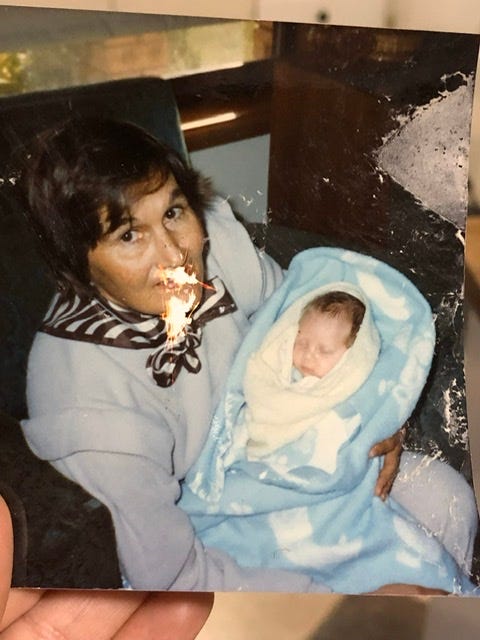“I had to learn how to be a mum because my mum was Stolen Generations and she didn't know how to be a mum.”
These words belong to Naomi Murphy, a Waka Waka woman, who embodies the hurt and the healing of this country’s sorry past.
Her mum was stolen, and so was she.
“Healing started when I connected to my culture. It gives you purpose and identity.”
According to Common Ground First Nations, quoting The Family Matters Report 2021, there are 21,523 First Nations children in out-of-home-care, as of June 30, 2020. SNAICC quotes the figure at 18,862. That’s 11 times the rate of non-Indigenous children. Whichever figure you go with, it more than doubled in the years since Kevin Rudd’s Apology in 2008.
In 2008, I was 16 years old, watching the ABC broadcast from a small, rarely-used television in the corner of my modern history classroom. The TV was mounted to the wall and nestled against the ceiling. Probably dusty. The only other time I remember using it was to watch Barack Obama’s victory speech, later that same year. So much hope radiated out of that little TV.
I watched my teacher cry while the Prime Minister enumerated his government’s crimes (though they’re not really crimes when you make the laws) and apologised for them. I understood very little, in hindsight.
Not long after that, Mum told me something she half-knew, half-suspected about Grandma, how she was removed from her mother’s care as a child. That was the first suggestion I heard that my grandma, who died when I was five, was Aboriginal. I had questions, but not the words - or the knowledge - to articulate them. Mum wouldn’t have had answers anyway. Until recently, it was something we only spoke about in allusions, tiptoeing the periphery of a family secret that felt bigger than me, and still does.
As I educated myself, the more I realised my family’s story is a very common one. I heard my mum disclose her story to an old friend once. Her response was, “You’re so lucky.” It was a half-drunk, foolish thing to say but it represents a strange branch of thought in contemporary Australian society; that unearthing Aboriginality gives flavour to an otherwise bland identity. A perversion of the old “breed out the black” rhetoric that dictated the way generations of Australians lived their lives, under the law and under social pressure.
My grandmother and her mother and her mother and probably her mother too all “married out” because, on the east coast of Australia where colonisation hit first and hit hard, assimilation meant survival.
If we were taught a truer history of this country, we would all know this. And maybe we wouldn’t say things like, “You’re so lucky.”
Although, I am lucky. I have the privilege of fair skin, to present to the world as a white woman, with all that entails. I’m lucky to have been able to make the connections I have to find my way back, slowly, to long-neglected pieces of the past.
Still, the picture won’t ever be complete. It often feels lonely, and I struggle all the time with the tensions that emerge in a family when you’re trying to rewrite its history. It’s easy as a teacher. It’s hard as a mother. It’s hardest as a daughter.
Becoming a mother has altered my perspective, in beautiful ways and painful ones. I recently learned about Aunty Esme Timbery and her beautiful shellwork. I learned about her slippers, two hundred tiny velveteen pairs, adorned in shells and installed, en masse, on the walls of the MCA. Each one representing a child, stolen from their mother. From their language, their culture, their people.
Last weekend I went to a wedding, and spent the first night away from my child since he was born. At the end of the night we ended up in Newtown at the house of an acquaintance, not far from our own. On the mantelpiece lay four tiny pairs of slippers, each one studded with shells. I touched each one.
The past is never finished with us. Sometimes it’s the only way any of us can possibly know, or imagine, what might come next.
For the first time in so long, I feel optimistic for this country. I don’t care if it was the bare minimum, I felt happy and proud when Albo put the Aboriginal and Torres Strait Islander flags up behind the podium, at the first chance he got. Small shit matters. The things we tell our children matter.
I am made of stories. My parents’ stories, my grandparents’. Stories that began long before I was born, that will continue long after I’m gone.
So are you. We’re all just points along the way, lighting a path for ourselves and each other.
Together, that feels something like stars. Radiating hope.




Beautiful, Han